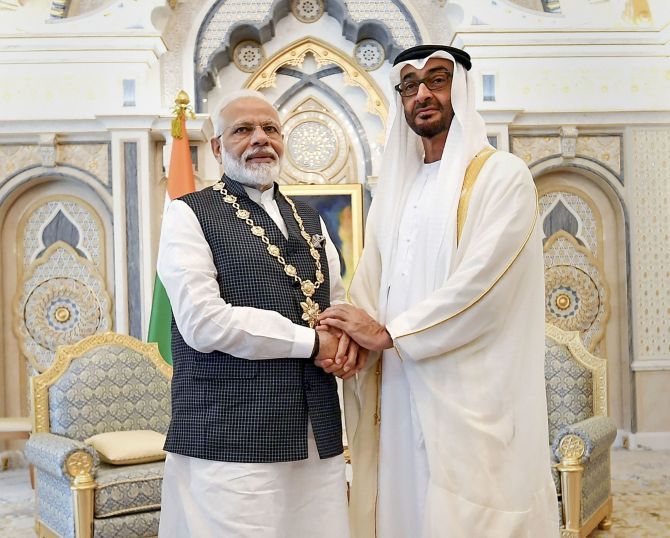
The release of Aadujeevitham: The Goat Life has caused a wave of controversy in Saudi Arabia and the wider Gulf region. Many viewers have called for a boycott of both the film and Netflix, accusing the filmmakers of misrepresenting Arab culture and damaging the image of the Kingdom of Saudi Arabia. The film, which tells the story of an Indian migrant worker forced into a life of near-slavery as a goat herder, has been criticized for perpetuating harmful stereotypes about Arab employers and the wider Gulf society.
This controversy is not new. Indian cinema has a long history of portraying Muslims in a negative light, often casting them as villains or extremists. Now, with Aadujeevitham, it appears that the focus has shifted to Arabs. Many critics argue that the film is part of a larger pattern in Bollywood, where Muslim characters and Islamic cultures are consistently demonized.
Indian cinema has often been criticized for its portrayal of Muslims. In countless Bollywood films, Muslim characters are depicted as violent, aggressive, or backward, feeding into harmful stereotypes about the community. Movies like Padmaavat and Kesari have been accused of glorifying Hindu heroes while casting Muslim rulers and warriors as barbaric invaders. Similarly, films like Mission Kashmir and Fanaa have depicted Muslims as terrorists or threats to national security.
At the heart of the controversy is the film’s depiction of the kafala system, a labour sponsorship system used in many Gulf Cooperation Council (GCC) countries, including Saudi Arabia and the UAE. Critics of the system argue that it allows employers to exploit foreign workers, often leading to situations of forced labour and abuse. Human rights organizations have long called for reforms to the system, and several GCC countries have made efforts in recent years to improve the rights of migrant workers. However, Aadujeevitham focuses solely on the negative aspects of the kafala system without acknowledging any of the progress that has been made. The film’s portrayal of the protagonist’s plight is undeniably tragic, but it also feels exaggerated—an extreme example designed to evoke sympathy for the migrant worker while casting Saudi society as inherently cruel.
For many in Saudi Arabia, the film feels like an attack on the Kingdom’s culture. Rather than presenting a nuanced view of the kafala system and its shortcomings, Aadujeevitham reduces the issue to a simple narrative of good versus evil, where the Arab employer is the villain and the Indian migrant is the innocent victim. The backlash against Aadujeevitham is not just about the film itself—it’s about the broader issue of how Arab culture is portrayed in international media. In recent years, the Arab world has faced increasing scrutiny from the Western media, with many outlets focusing on human rights abuses and labour exploitation in the region. While it is crucial to raise awareness of these issues, it is equally important to avoid casting entire cultures in a negative light.
The film’s portrayal of the kafala system as a tool of oppression is not entirely inaccurate, but it is incomplete. It fails to take into account the efforts that countries like Saudi Arabia and the UAE have made to reform their labour laws and improve conditions for migrant workers. It also ignores the fact that many Arab employers treat their workers with respect and dignity, offering them fair wages and good working conditions. By focusing exclusively on the negative aspects of the kafala system, Aadujeevitham reinforces harmful stereotypes about Arab culture, casting the entire region as backward and oppressive. This kind of one-dimensional storytelling does a disservice to the millions of Arabs who are working to improve the lives of migrant workers and create a more equitable society.
The controversy surrounding Aadujeevitham highlights the need for more balanced storytelling in both Indian and international cinema. While it is important to bring attention to the struggles faced by migrant workers, it is equally important to avoid perpetuating harmful stereotypes about entire cultures. The film’s portrayal of Arab employers as heartless oppressors does a disservice to the many people in the Gulf who are working to improve conditions for migrant workers and reform the kafala system. As the debate over Aadujeevitham continues, it’s crucial to remember that storytelling has the power to shape public perceptions. Films like Aadujeevitham should aim to present a more nuanced view of complex issues, rather than reinforcing harmful stereotypes about Arab culture. Only then can we begin to have a more productive conversation about the real challenges faced by migrant workers in the Gulf and beyond.

